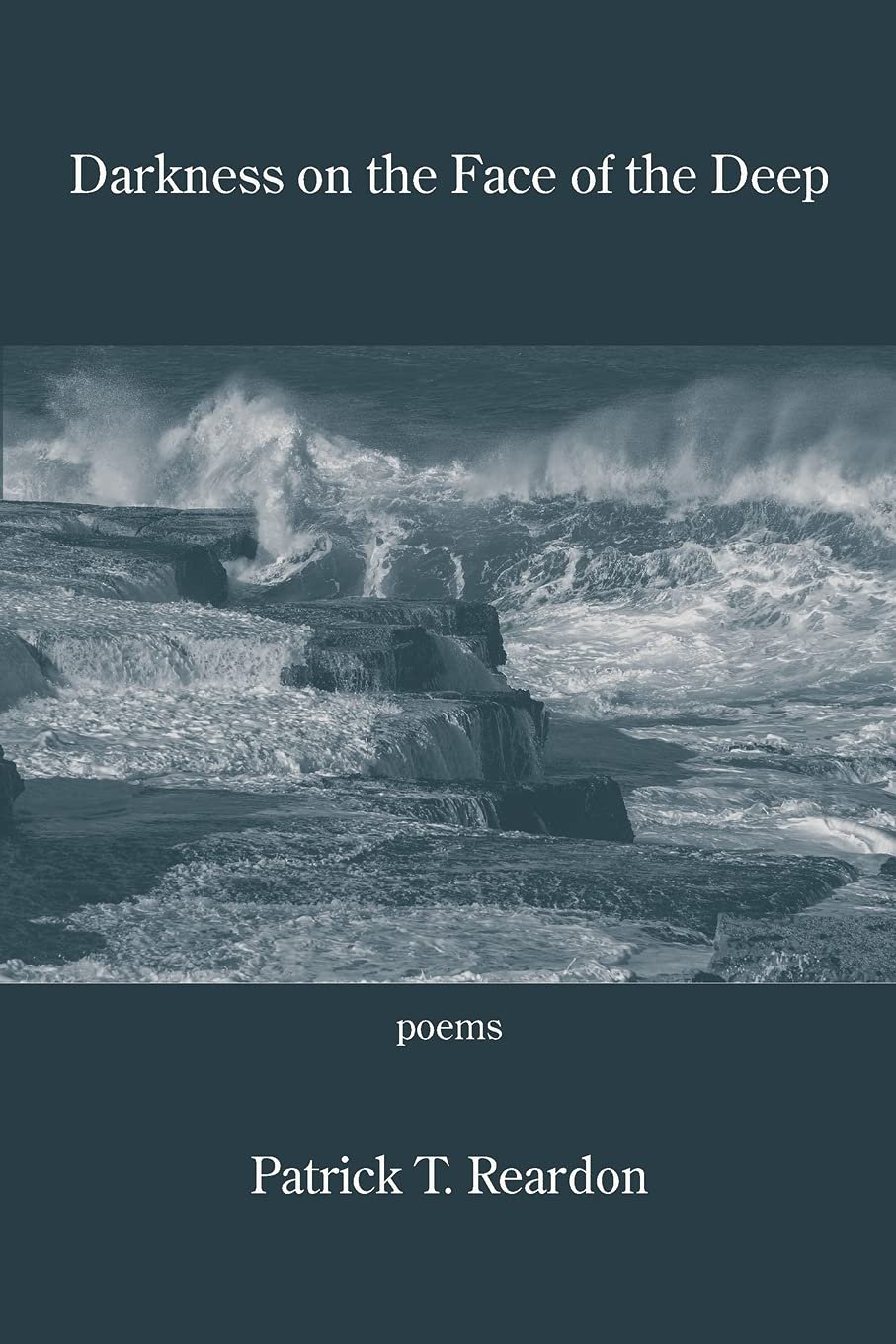Darkness on the Face of the Deep
During difficult times (like a pandemic), everything seems to take on new meaning and greater significance. A jog in my neighborhood becomes a vital source of fresh air outside my home. A trip to the movies becomes a rare opportunity for shared experience and not just another night spent alone watching a screen. A beer at the bar with a friend seems like time spent on holy ground. The deeper meanings and the importance of life’s moments are not lost on Patrick T. Reardon in his new collection, Darkness on the Face of the Deep.
The book is filled with biblical imagery in a modern setting. Throughout it, there are allusions to stories and passages from the Bible. Some poems contain biblical characters or streets named after books in the New and Old Testaments: “I picked up St. Judas out/ on Ecclesiastes Road,/ hitching a ride to any place.” By placing the biblical in our modern times, Reardon achieves something Whitmanesque. As Whitman sang of himself but also sang of his young nation, Reardon sings of our dysfunctional nation while managing to place us in the company of the divine, “the Son/ escaped out a side/ door to go bowling/ with the blind.”
This wouldn’t have come off quite so successfully without the poet’s keen eye for realist imagery. Perhaps it is his many years spent as a reporter that serve Reardon so well here. Whether he is describing how a “city flag flaps forlornly in rain,/ empty of glory” or an area “behind the Signboards facing Washington Boulevard,/ tall weeds, mush cardboard, jagged glass bottles,” his hard-boiled details offset a religious iconography that may have otherwise proven mawkish or staid. Instead, we have the America of boarded up businesses, potholed streets, and insurance scams, where a prophet just might buy you a drink at the local tavern.
This is not to say that Darkness on the Face of the Deep is solely comprised of a cold, gritty realism. The poet delights in language and in the music of his words Reardon seamlessly weaves juxtapositions together, “Call me cancer on the back undiscovered./ Call me thunder of the poor./ Call me flowering sidewalk,/ sharp-edge wood, whispering.” It is anaphora like this that seems to provide the perfect vehicle for the poet’s impassioned verbal reverie and religious ecstasy. And through it he celebrates the ordinary and finds meaning in nearly everything.
As someone who lives in a city, I deeply admire Reardon’s love for the streets and people of Chicago. This is an ardor that is palpable throughout Darkness on the Face of the Deep and it was a pleasant surprise. As noted, he has a talent for describing the harshness and beauty of an urban setting. He also creates engaging characters with just a few lines. Perhaps it is on these streets and with these people where we find our greatest hope. For Reardon, “each radiant girl in flip-flops blushing into her phone” and “every baby born at Northwestern Memorial Hospital” is a gift worth rejoicing over. And as all of us emerge out of our current crises, let us not forget it.
Benjamin Schmitt
Benjamin Schmitt is the author of four books, most recently The Saints of Capitalism (New Meridian Arts, Fall 2021) and Soundtrack to a Fleeting Masculinity. His poems have appeared or are forthcoming in Sojourners, Antioch Review, The Good Men Project, Hobart, Columbia Review, Spillway, and elsewhere. A co-founder of Pacifica Writers’ Workshop, he has also written articles for The Seattle Times and At The Inkwell. He lives in Seattle with his wife and children.


